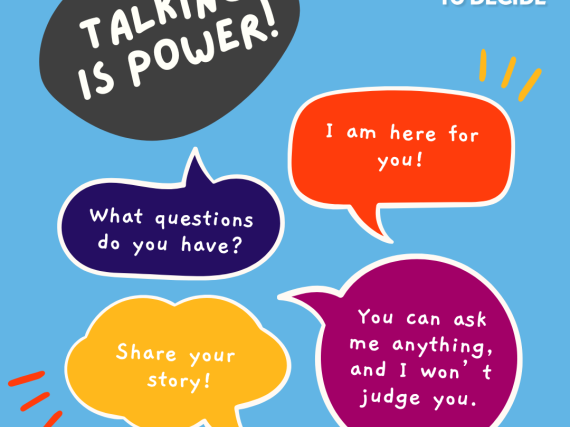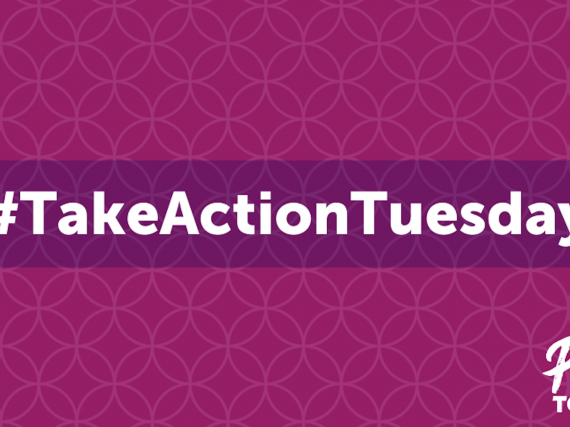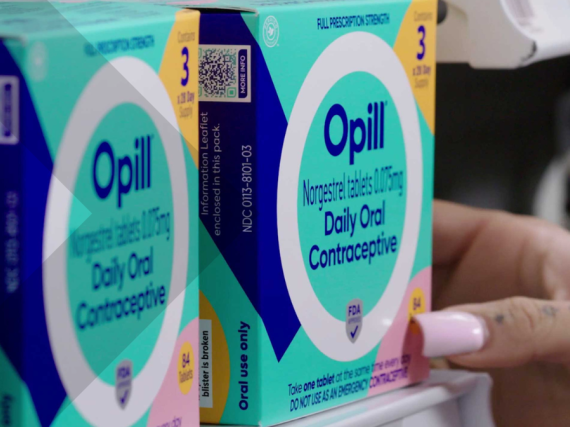Thoughts From A Sexuality Educator
Throughout middle school, whispers of crushes, flirting on AIM, first periods, and shaving grew as we did. As many 12-year-olds do, I smiled and laughed in agreement even when I didn’t know what my peers meant. All the while, I was eager to get home and ask one of my brothers how to ‘do’ all of this. I’ll never know if the first brother who I sought wisdom from was genuinely misinformed about these topics too, or if he was intentionally trying make me even more embarrassed about navigating the world as a pre-teen, but he wasn’t much help. When I asked him about the wonders of shaving, he told me where I could find our mom’s razor and gave me explicit directions on how to shave my arms. Not my armpits, my arms. A week later, I found myself back on the playground, staring at how the sun hit my prickly and partially grown out hair, quite certain that I was not any closer to understanding the mysteries of puberty.
Today my arm hair has fully regrown and as an act of hope and justice, I teach sexuality education to middle schoolers.
When I reflect on the gaps in my own sexuality education—and with each new class that I lead on consent, healthy relationships, or gender identity — ‘sex ed for all’ remains my vision for the future, and my driving motivation for engaging in this work.
Perhaps the oldest (and most misinformed) question in the book asks, “Aren’t your lessons just giving young people permission to have sex and get pregnant?”
When we look to the research, the short and honest answer is, no – quite the opposite. Providing age-appropriate, evidence-based, and comprehensive sexuality education to every person, and throughout every stage of their development, is essential. If we acknowledge that each of us is a sexual being for the entirety of our lives (meaning that all people experience or have some combination of intimacy, sensuality, sexualization, sexual identity, and sexual and reproductive organs), then we also must acknowledge that sexuality education is critical to our development, critical to our health, and critical to how we understand ourselves and those around us. If sexuality plays such an undeniable role in our lives, why wouldn’t we want all people to have the essential knowledge and skills to define their values in order to best navigate the world? Just as we learned the foundations of math and science and built on them in each new year of school, I yearn for the day when sexuality education is universally recognized and adopted with the same widespread acceptance.
Unfortunately, however, widespread acceptance of comprehensive sexuality education is not going to happen overnight. As we continue to build momentum for this movement, we must stay anchored in the proud truths about this work.
One of these truths is that comprehensive and quality sexuality education is not absent of values, but instead, it centers them. In class, if I have done my job well, I have facilitated a space where participants are naming and experiencing their own sense of power, where they are communicating better, and where they are more cognizant of their identities. Sexuality education is a means for participants to wrestle with and better articulate their own values, all while increasing their empathy for others and their sense of justice. The sexuality education classroom can be the practice grounds, where problem- solving and critical thinking come to life. Experiences of this depth and importance are a constant reminder of how removing the unnecessary veil on sexuality is a common good. Buried under narratives of judgment, fear, and shame, sexuality educators like myself and many other champions can help create a new reality.
Additionally, comprehensive and quality sexuality education provides young people with access to information they deserve as well as a consistent, knowledgeable, curious, and non-judgmental adult who is willing to have conversations with them that they may not get anywhere else. One way that I have created this trust in the classroom is inviting students to ask any question and reinforcing that all questions are good questions. I am honest with participants when I am stumped and promise that I will come back the next week with an answer. Reinforcing curiosity has also been established through an ‘anonymous question box.’ In the form of a decorated shoe box, this becomes one of the safer spaces to place their ponderings. With each notecard they submit, I sense that my students start to believe asking these questions is in fact not shameful at all, but rather, liberating. Boiling down the questions I receive, they all seem to ask, in one form or another, “Am I normal?” Whether the topic is masturbation, size of their genitalia, symptoms of puberty, or age of first sexual experience, they are craving to hear someone say that their experience is valid, that they are normal, and that they are not alone.
As a proud facilitator, I believe that each person, young and old, deserves quality and comprehensive sexuality education. ‘Sex Ed for All’ is a powerful goal, and one that is worth being on the front lines for.



